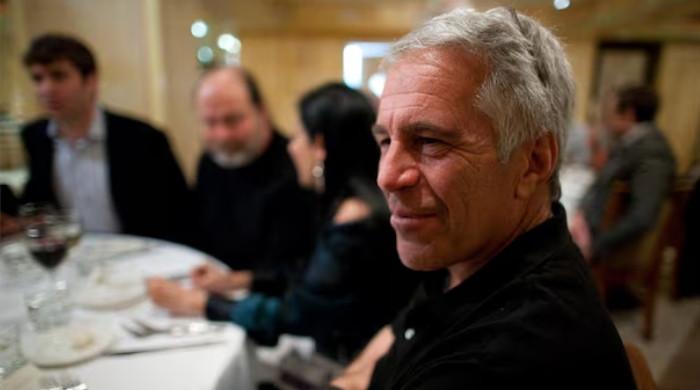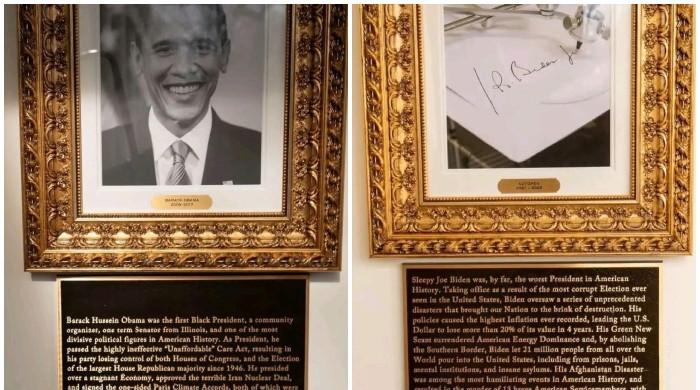Saudi rights activist Loujain al-Hathloul sentenced to more than five years in jail
United Nations human rights experts have called the charges “spurious”
December 28, 2020

- Hathloul, 31, has been held since 2018 following her arrest
- She was charged with seeking to change Saudi political system
- UN human rights experts have called the charges “spurious”
SAUDI ARABIA: A Saudi court on Monday sentenced prominent women’s rights activist Loujain al-Hathloul to five years and eight months in prison, her family and media said, after her conviction in a trial that has drawn international condemnation.
Hathloul, 31, has been held since 2018 following her arrest along with at least a dozen other women’s rights activists.
The verdict poses an early challenge to Crown Prince Mohammed bin Salman’s relationship with US President-elect Joe Biden, who has criticised Riyadh’s human rights record.
Hathloul was charged with seeking to change the Saudi political system and harming national security, Sabq and al-Shark al-Awsat newspapers said.
The court suspended two years and 10 months of her sentence — or most of the time already served since her arrest on May 15, 2018 — with a conditional release to follow, the newspapers and Hathloul’s sister said.
She could therefore be released around end of February 2021, with a return to prison possible if she commits any crime, the newspapers said.
Read more: Saudi Arabia imposes fines, imprisonment or both as replacement for flogging
Hathloul was also given a five-year travel ban, her sister Lina tweeted, adding that both the public prosecutor and Hathloul could appeal.
United Nations human rights experts have called the charges “spurious” and along with leading rights groups and lawmakers in the United States and Europe have called for her release.
The UN human rights office wrote on Twitter that Hathloul’s conviction was “deeply troubling” and called for her early release “as matter of urgency”.
Rights groups and her family say Hathloul, who had championed women’s right to drive and for ending the kingdom’s male guardian system, was subjected to abuse, including electric shocks, waterboarding, flogging and sexual assault. Saudi authorities have denied the charges.
The criminal court last week cleared the prosecution of torturing Hathloul in detention, saying there was no evidence to support the allegations.
Hathloul’s conviction and sentencing came nearly three weeks after a Riyadh court jailed US-Saudi physician Walid al-Fitaihi for six years, despite US pressure to release him, in a case rights groups have called politically motivated.
Read more: Saudi Arabia eliminates death penalty for minors
Riyadh could use the sentences as leverage in future negotiations with the Biden administration, one diplomat said.
Biden has said he will take a firmer line with the kingdom, an oil titan and a major buyer of American arms, than President Donald Trump, who was a strong supporter of Prince Mohammed.
Charge Sheet
Saudi officials have said the arrests of women activists were made on suspicion of harming Saudi interests and offering support to hostile elements abroad. Some of the women detainees have been released while their trials continued.
Activist Nassimah al-Saadah was sentenced to five years in prison with two suspended in late November, according to Human Rights Watch (HRW).
Read more: Saudi women activists detail torture allegations in court
Hathloul’s family made her charge sheet public after her case was transferred to Riyadh’s Specialised Criminal Court, originally established to try terrorism suspects but which has been used over the past decade to prosecute perceived dissidents.
The main charges against Hathloul, which carried up to a 20-year sentence, included: seeking to change the Saudi political system, calling for an end to male guardianship, attempting to apply for a U.N. job, attending digital privacy training, communicating with international rights groups and other Saudi activists.
Hathloul was also charged with speaking to foreign diplomats and with international media about women’s rights in the kingdom, including Reuters, which declined to comment.
“The case against Loujain, based solely on her human rights activism, is a travesty of justice and reveals the depths to which they will go to root out independent voices,” said Adam Coogle of Human Rights Watch.
The Saudi government media office did not immediately respond to a Reuters request for comment.
Who is Loujain al-Hathloul?
Hathloul rose to prominence in 2013 when she began publicly campaigning for women’s right to drive in Saudi Arabia.
She was arrested for the first time in 2014 while attempting to drive across the border from the United Arab Emirates — where she had a valid driver’s licence — to Saudi Arabia. She spent 73 days in a women’s detention facility, an experience she later said helped shape her campaigning against the kingdom’s male guardianship system.
In 2016, a year after she became one of the first women to stand for the municipal election in Saudi Arabia, she was among 14,000 signatories on a petition to King Salman calling for an end to the guardianship system.
In 2018, she attended a public meeting in Geneva to brief the Committee on the Elimination of Discrimination against Women (CEDAW) on women’s rights in Saudi Arabia.
Detention
In March 2018 Hathloul was arrested in the UAE where she was studying and forcibly flown to Riyadh where she was held under house arrest before being moved to a prison in May, rights groups say. She was among at least a dozen other women’s rights activists arrested, and Saudi media tarred them as traitors.
Rights groups say at least three of the women, including Hathloul, were held in solitary confinement for months and subjected to abuse including electric shocks, flogging and sexual assault. Saudi authorities have denied torture allegations.
In August 2019, Hathloul’s family said she had rejected a proposal to secure her release from prison in exchange for a video statement denying reports she was tortured in custody.
Hathloul went on hunger strike in October - her second in 2020 - to protest against the conditions of her detention. Her family said she was forced to abandon the hunger strike after two weeks because her jailers were waking her every two hours.
Last month, her case was transferred from the regular criminal court to a special terrorism court.









